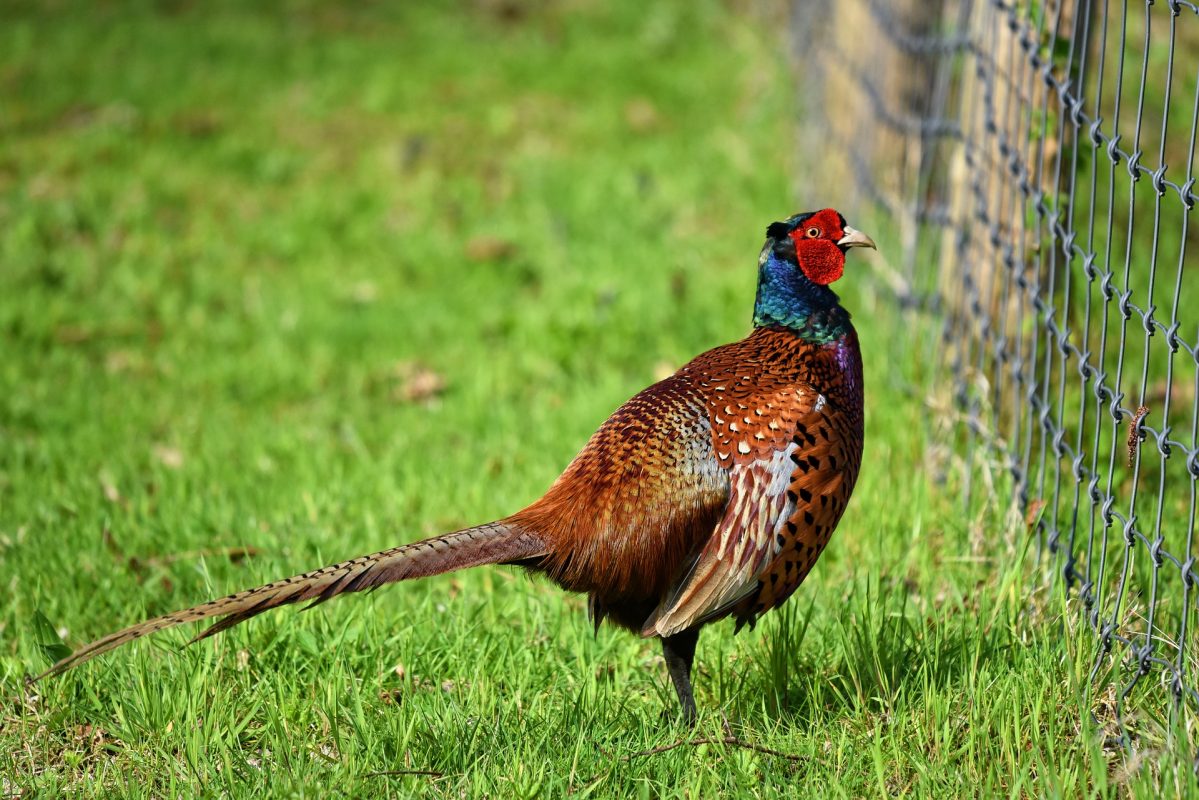Pheasants
How to rear healthy pheasants
Rearing healthy pheasants is a challenge for any gamekeeper. Our four step approach is designed to help gamekeepers to rear healthy pheasants.
Pheasant Housing Hygiene Programme
The starting point for rearing healthy pheasants and partridges is to have clean housing for them to live in. Without high levels of hygiene in the pheasant pens, there is a greater likelihood of disease occurring especially when young pheasant chicks are arriving at the game farm. In the early weeks of life, chicks are more susceptible to sickness so thorough cleaning should be carried out to prepare their new environment before they arrive. This is when Natural Farm Health’s Pheasant Housing Hygiene Programme is of utmost importance.
The programme consists of two products Enviromist and Cloversan which have been continually used by our customers in the United Kingdom and Ireland for many years. The first step is to thoroughly clean the pheasant housing and equipment and then use Enviromist to spray/mist everything. Then Cloversan can be used and this is sprinkled on the floor space over the bedding before chicks arrive.
Pheasant Chick Rearing Programme
Get your pheasant chicks off to a good start with the Natural Farm Health seven week programme which optimises growth rates by boosting resistance and reducing stress at key stages. This is for both chicks which have hatched on the game farm or have arrived at the game farm as young chicks from hatcheries, either in the UK or further afield.
In the first few days, make sure that the chicks are eating and drinking so never let them run out of feed or water. Also make sure that the are warm so close up any drafts and use a heat lamp but they shouldn’t be too warm so it is important to provide adequate ventilation.
Inspect the chicks frequently during the first week and at night time. Very young pheasant chicks can die from piling as they are cold especially during the first few nights on the game farm.
Rearing pheasant chicks takes a lot of commitment from the gamekeeper until they are released to pens at seven weeks old. In this period, be very careful to spot any potential health problems or behavioural changes which may indicate that there is a potential health problem. On first signs of a problem, use the relevant Natural Farm Health product for pheasants.
| Problem | Natural Farm Health Product |
| Acclimitisation | Recharge |
| New environment | Rem 2 |
| Enteritis/Hexamita | Enterite |
| Biting, catching of birds or transportation | ImuStress |
| Coccidiosis | Coccinon |
| Worms | ImuWorm |
| Respiratory difficulties | Respirex |
| Rota Virus | Rotavie |
| Mycoplasma | MycoP |
Pheasant Poult Rearing Programme
Prepare your seven week old poults for movement to the release pens. Minimise stress and optimise resistance by following our Pheasant Poult Rearing Programme.
Adult Pheasant Breeding Programme
After catch-up, give your adult pheasants an immune boost to prepare for laying and combat health threats such as worms, coccidiosis and mycoplasma.

